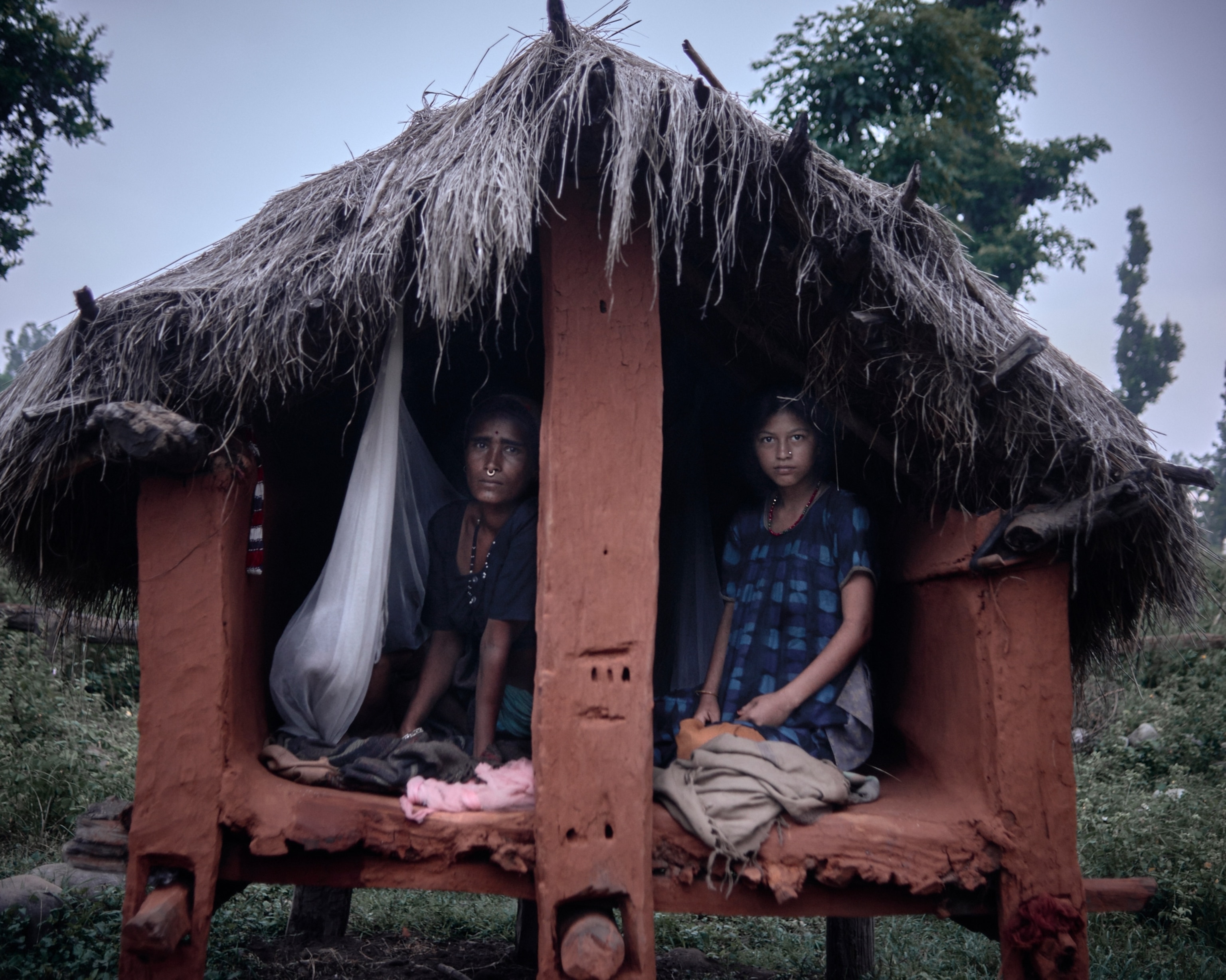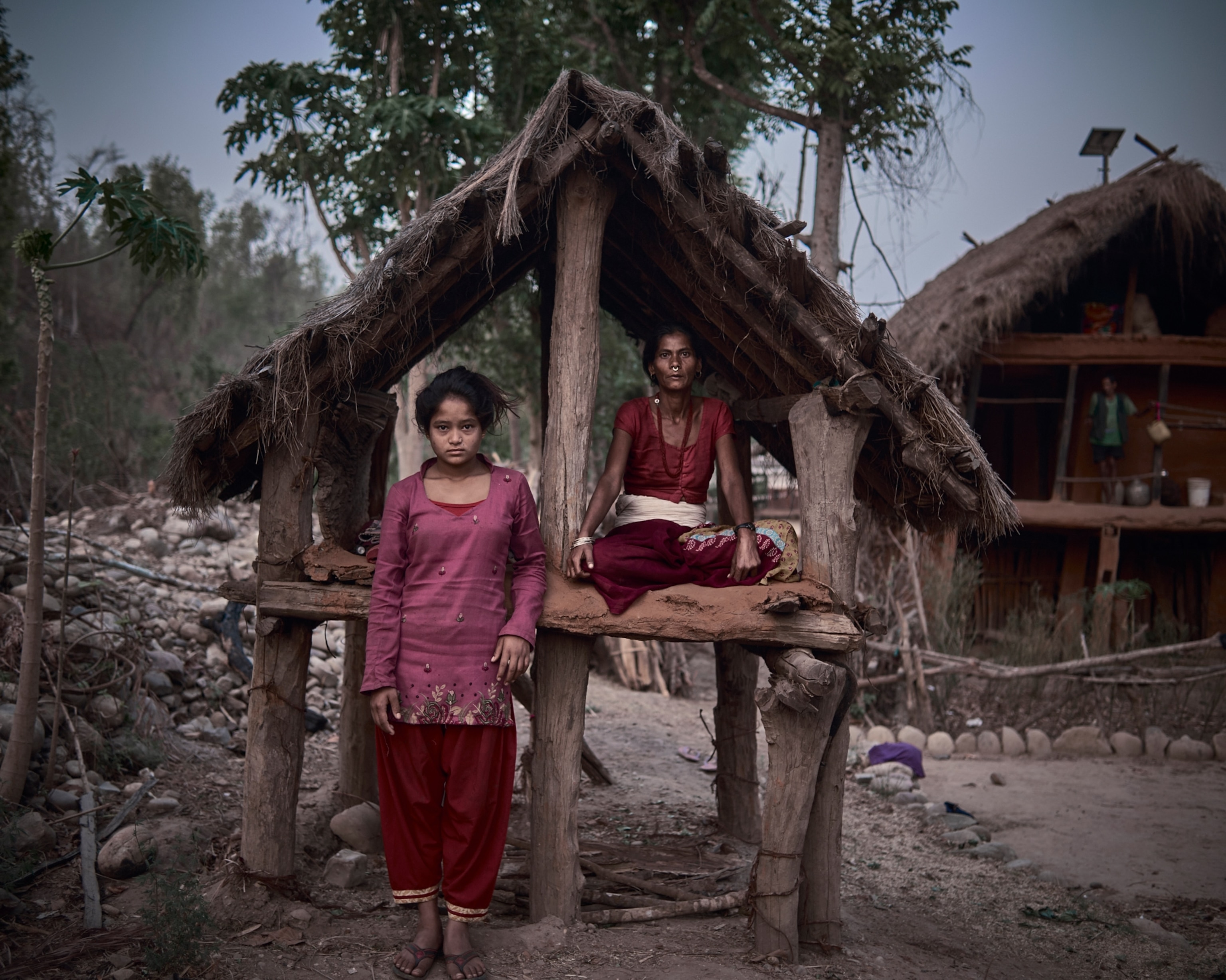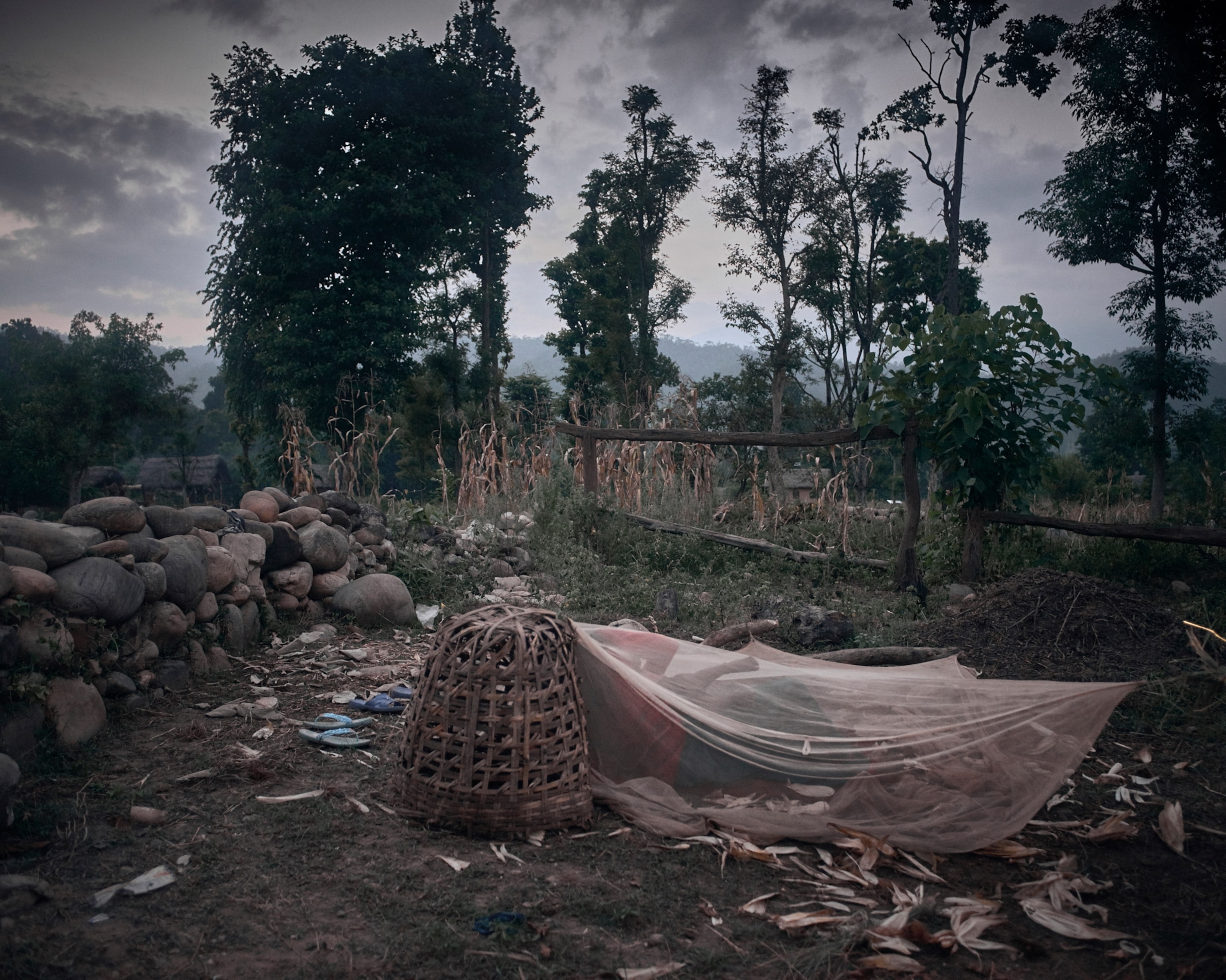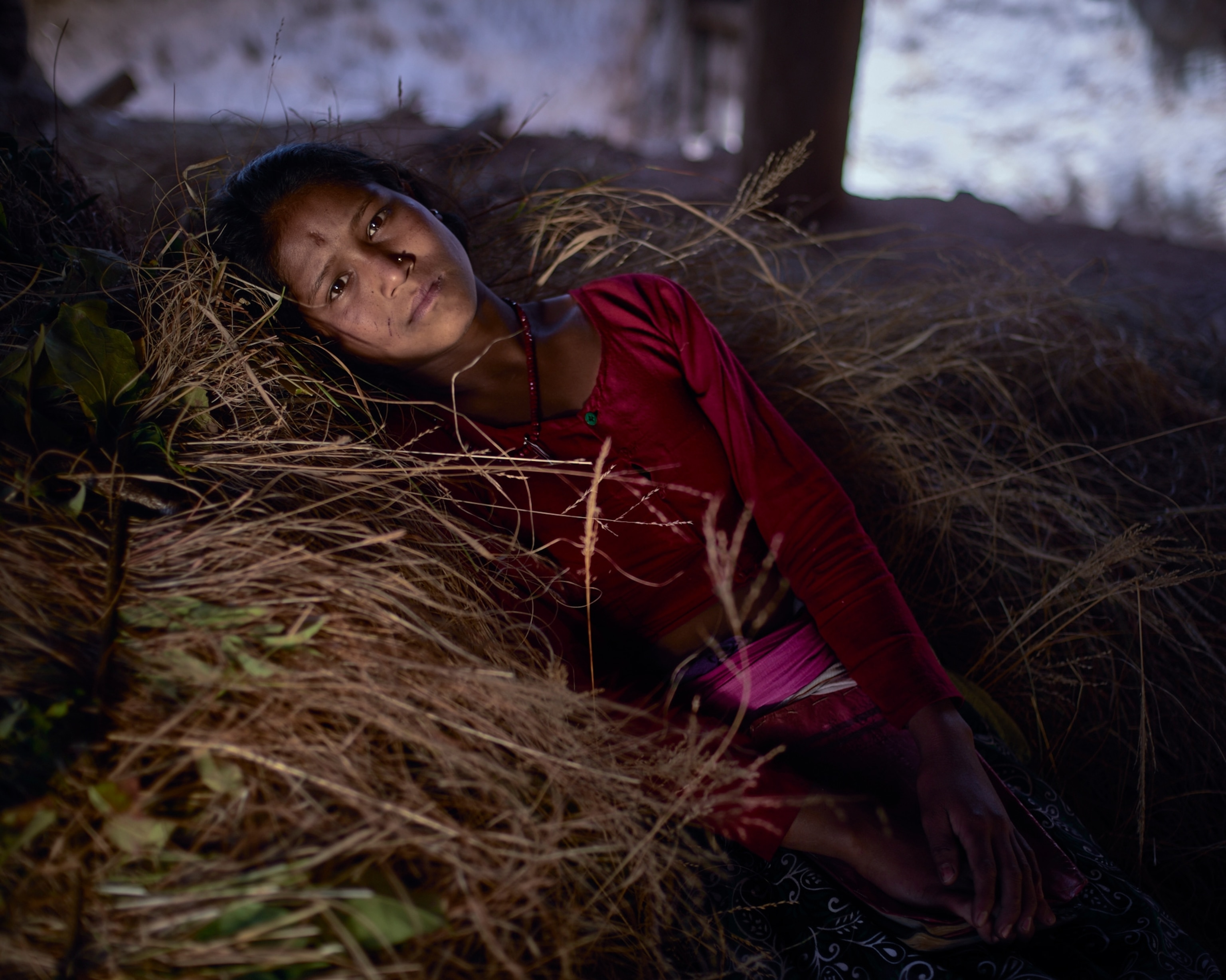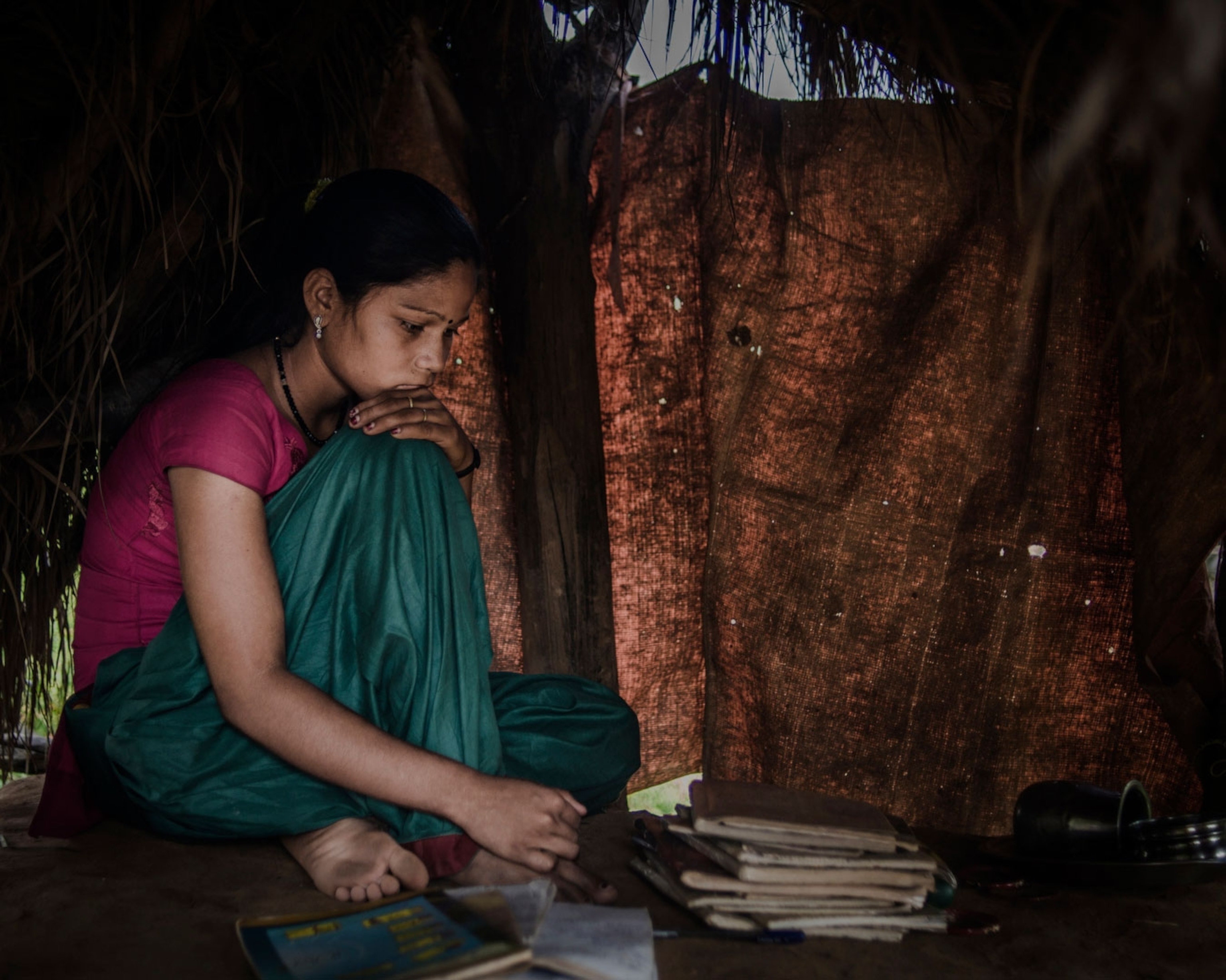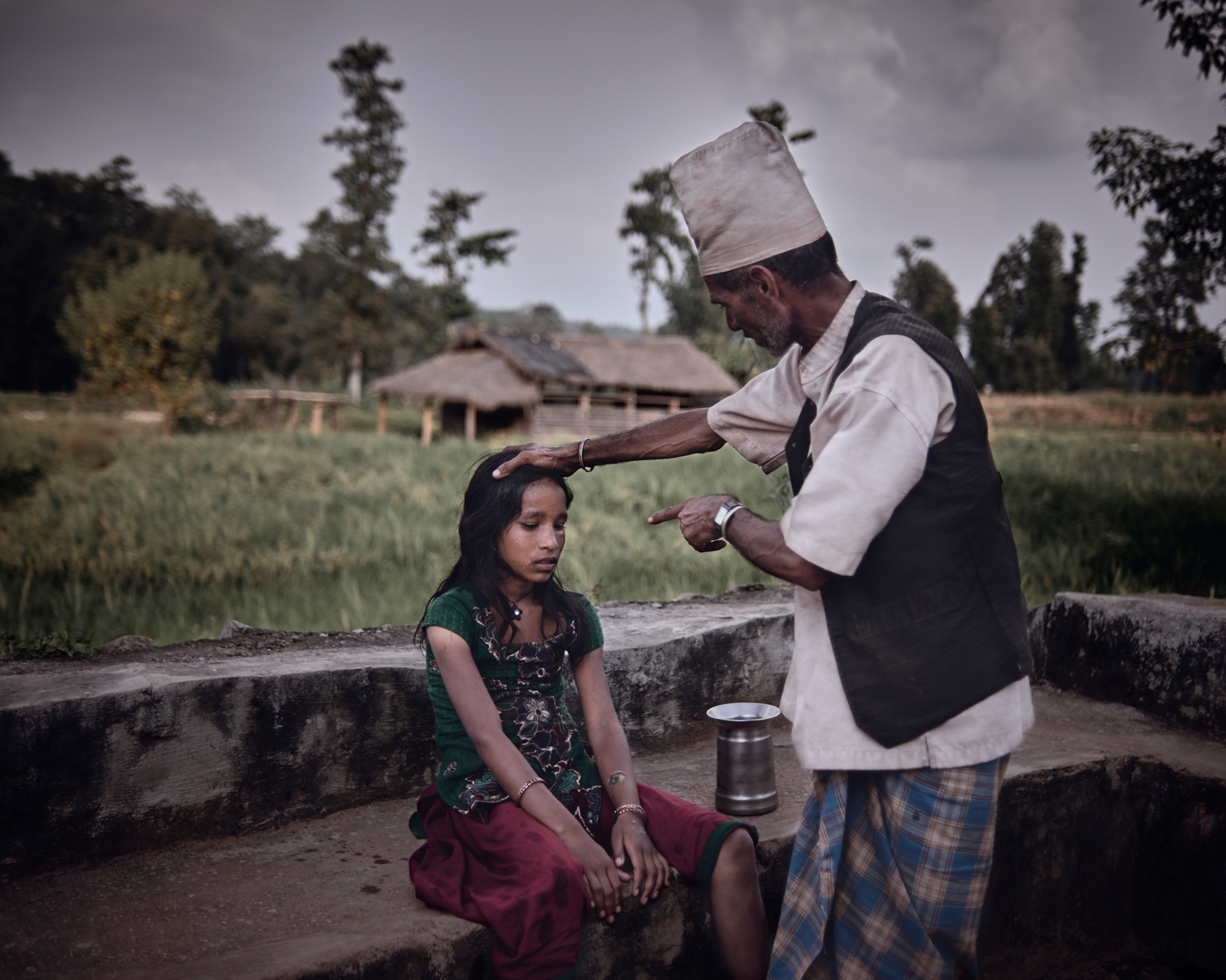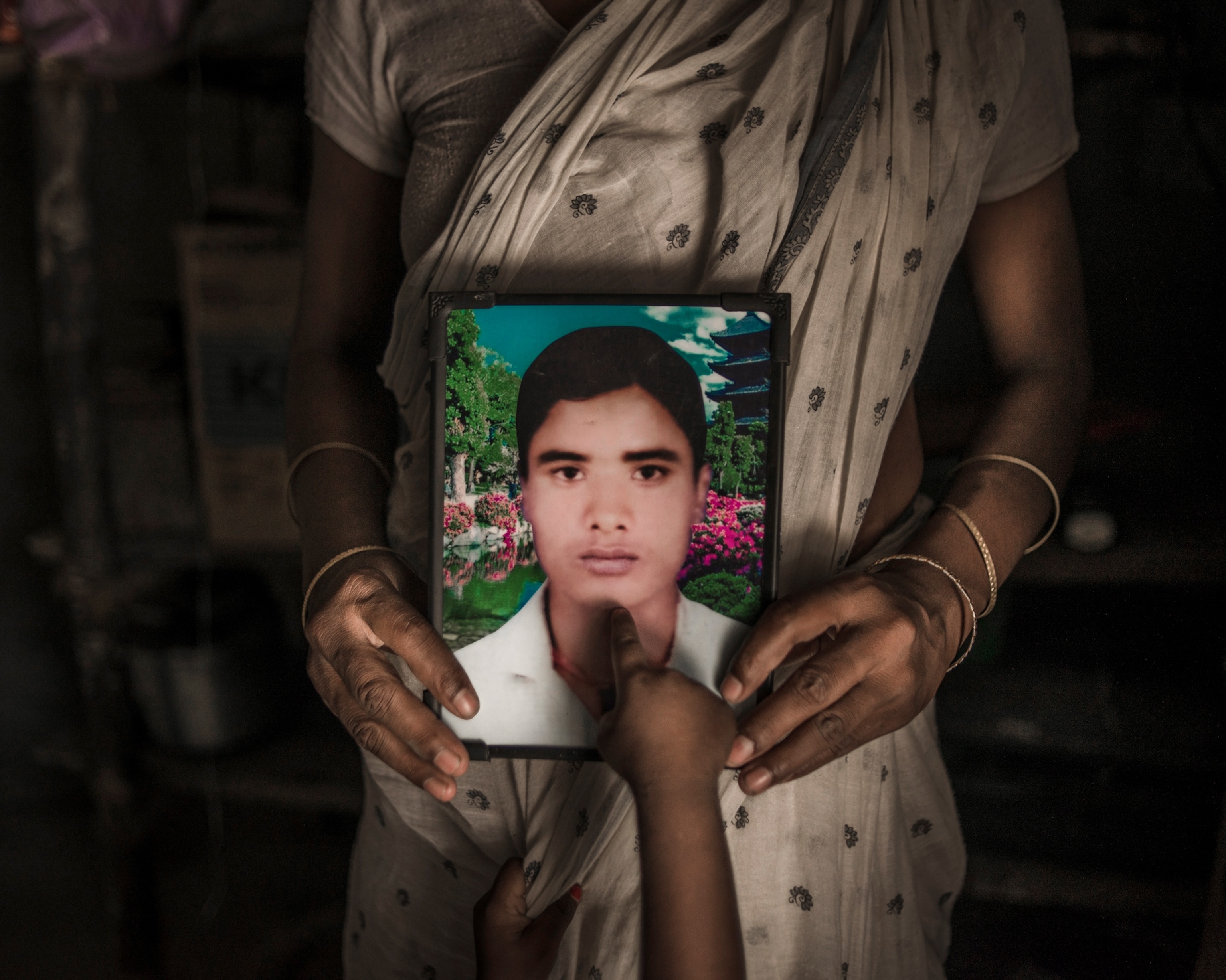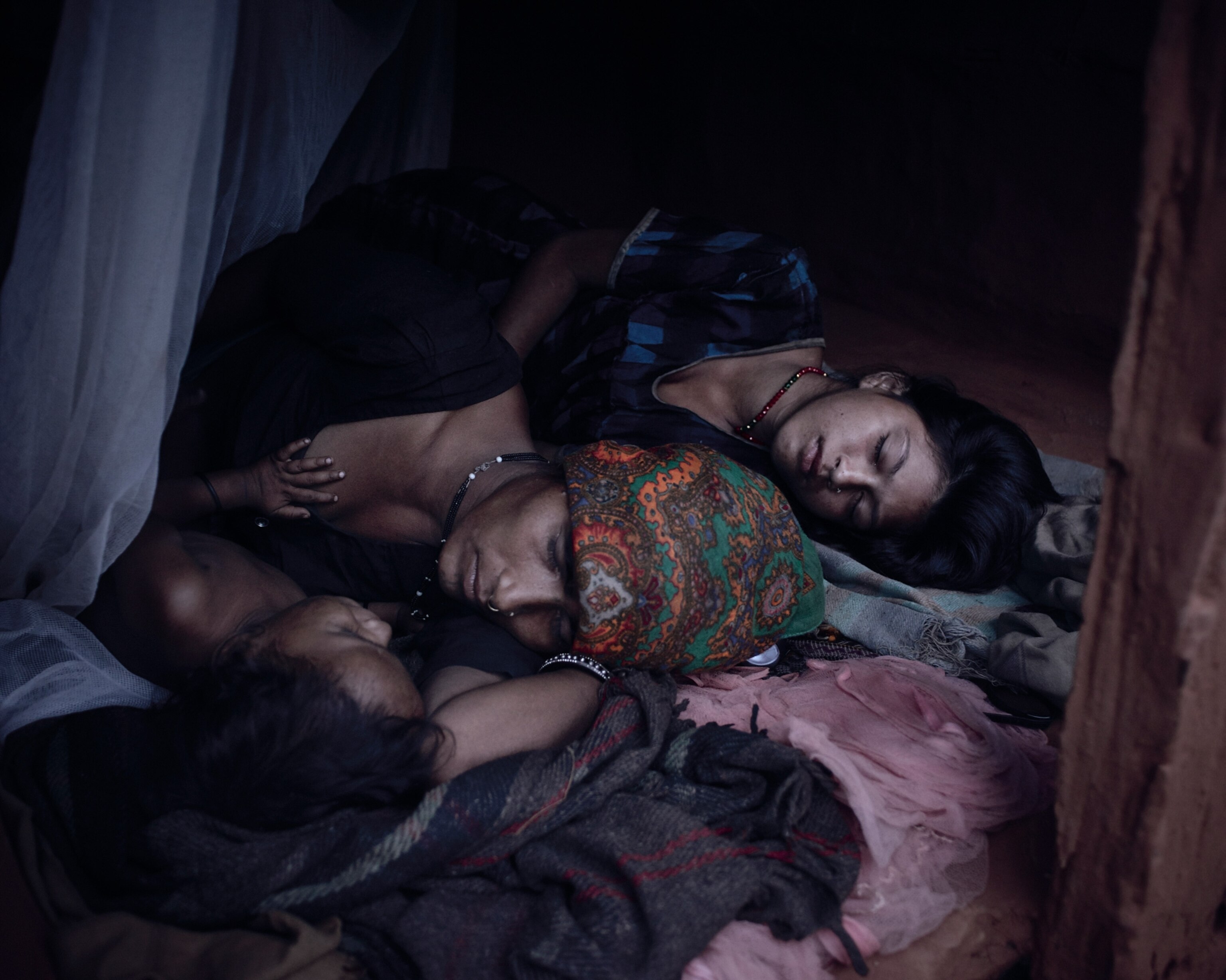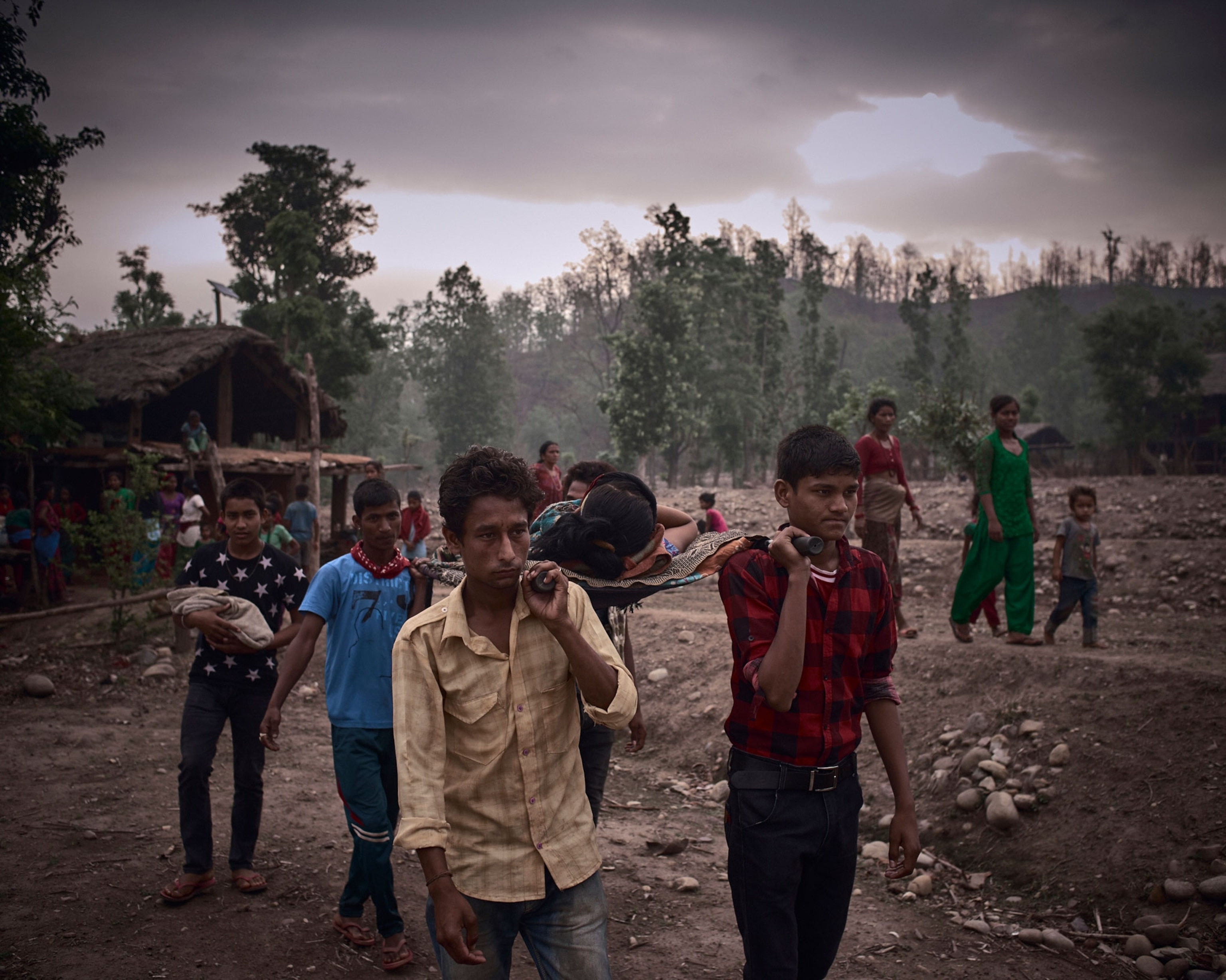The Risky Lives of Women Sent Into Exile—For Menstruating
In Nepal, a traditional belief about the impurity of menstrual blood means women and girls are banished to makeshift huts.
Photographer Poulomi Basu’s mother, a widow, does not wear the color red. In India, the country of Basu’s birth, red symbolizes both purity and sin and is also used to mark auspicious occasions. Traditional Hindu culture dictates widows dress only in saris made of white—the hue of mourning and death—for the rest of their lives. Further, they are forbidden from attending celebratory events or remarrying.
In the 16 years since her father’s death, 33-year-old Basu has convinced her mother to replace her white saris with brighter cloth, yet she still won’t touch red or vibrant pinks. Basu has managed to turn the tide of an oppressive tradition in the life of one of the most important people in her world; her mother. “Start one by one,” says Basu of her approach to affecting change.
“As I grew up, I realized how customs and traditions are used as forces to bring women to subservience and control them,” and this includes the use of color, she says.
With her series, “A Ritual of Exile,” Basu studies red as related to the blood of menstruation. Her long-term goal is to help end the entrenched Hindu practice of Chaupadi, which pushes menstruating women into isolation and into a normalized cycle of violence perpetuated by custom, tradition, and religion.
Photographed in neighboring Nepal, the work reveals the extreme situations women in rural regions endure for one week each month over the 35-45 years of their menstrual cycle. Viewed as unclean, untouchable, and having the power to bestow calamity upon people, livestock, and the land when bleeding, women are banished from their homes. Some stay in nearby sheds, while others must travel 10-15 minutes away from home on foot through thick forests to small secluded huts. While banished the women face, and frequently die from, brutally hot temperatures, asphyxiation from fires lit to keep warm during winter, the venom of cobra snakes, and rape.
Basu began her ongoing project in 2013, visiting Nepal an average of two weeks per year. Access is difficult, often depending on gatekeepers like husbands, mother-in-laws, school teachers, and the temporarily ostracized women. Often walking six to eight hours over mountainous terrain to reach the villages where Chaupadi takes place, Basu has had time to reflect. “I could not believe how much pain was within that beauty and that landscape we associate with freedom and adventure and escape,” she explains. For Basu, the heightened and turbulent countryside of Nepal—whether it’s a brilliant sky filled with stars or the clouds of a brewing storm—has come to symbolize the pain women are experiencing there.
“My work is very quiet because a lot of [it] is about the silent struggles and silent protests” that come with oppression of women in a patriarchal society, Basu notes.
The story of Lakshmi, a woman in her mid-30s with three children comes to Basu’s mind. Her husband left five years ago and has never returned. Still, Lakshmi dutifully goes into exile while bleeding. Her movements are enforced by her mother-in-law. Lakshmi is obligated to bring her children with her into the remote wilderness.
Next, she tells the story of a school teacher, one of the only women she met in in the villages who does not practice Chaupadi. When her best friend died after being raped in exile, her husband supported her decision to abandon the tradition. In the grand scheme of things, says Basu, this is an uplifting moment in the story of Chaupadi.
One of her favorite images shows Chandra Tiruva, 34, and her child, Madan, 2, sharing a hut with Mangu Bika, 14. The women, observing Chaupadi at the same time, are sleeping closely together. It’s such a tender moment,” says Basu. “Even within their exile the child is reaching out for the mother’s breast. It’s a moment of peace and love within that space.”
Basu knows the feeling of having others make decisions for her and the anger and frustration it evokes. “I was not allowed to enter a kitchen when my period started and religious festivities were off limits every time I bled,” she recalls.
She is also familiar with the strength of a mother who will do all she can to help a daughter break a cycle of misery and injustice. After her father died, Basu’s conservative older brother became the head of the household. Basu decided to leave home, and with unexpected financial help and support from her mother, relocated to Bombay. This proved to be a major catalyst for the life free from traditional constraints she now leads. "Not many people have the choice I did," admits Basu. “If [my mother] had cried and broken down and said I couldn’t go, I wouldn’t have left.”
In the images she makes, Basu recognizes the emotional connection she draws between her own experiences and the mothers who instinctually protect their children in the face of extreme circumstances.
Regardless of the fact that Chaupadi was declared illegal by Nepal’s Supreme Court in 2005, the women Basu photographs have been trained to accept the tradition without complaint. Yet keeping quiet doesn’t mean they’ve accepted Chaupadi for their daughters. A few have clandestinely said to Basu, “Won’t you take my daughter? Take her to the city with you. Just take her and run.”
The road to revolution is not easy, Basu says.
You can see more of Poulomi Basu's work on her website. “A Ritual of Exile: Blood Speaks” is the winner of the 2017 FotoEvidence book award and can be pre-ordered on the FotoEvidence website.

